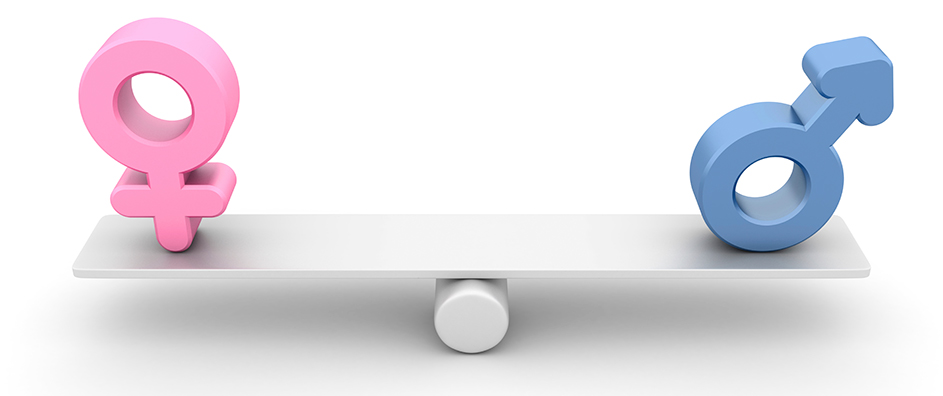The Bahá’í teachings constitute a rich tapestry of principles designed to foster peace, unity, and social harmony across diverse cultural landscapes. Among the most compelling of these principles is the foundational concept of equality of the sexes, articulated as a spiritual imperative. This principle serves as a vital linchpin in the framework of Bahá’í theology and ethics, urging the dissolution of archaic gender disparities that have pervaded civilizations throughout history.
Central to the Bahá’í view is the notion that gender equality is not merely a societal aspiration but an essential characteristic of a spiritually enlightened society. The equality of the sexes is analogous to the interplay of light and shadow; each element distinct yet inseparable, together illuminating the path toward a holistic understanding of humanity and propelling the advancement of civilization. Recognizing the need for both male and female contributions to the overall growth of society, the Bahá’í Faith asserts that true progress cannot be achieved unless both genders are afforded equal opportunities in education, leadership, and all facets of social life.
Embarking on this discussion necessitates an exploration of the theological underpinnings of gender equality within the Bahá’í Faith. Bahá’u’lláh, the founder of the Bahá’í Faith, has asserted unequivocally that the educational, spiritual, and moral advancements of women are intrinsically linked to the advancement of mankind. In this light, promoting women’s equality is akin to nurturing a flourishing garden; without the diverse blooms of both gendered contributions, the garden inevitably becomes desolate.
In the annals of history, patriarchal structures have erected formidable barriers that have stymied the constructive potential of half the human race. The Bahá’í teachings categorically reject and dismantle these barriers. Rather than espousing a doctrine that simply espouses women’s rights as a sociopolitical concern, Bahá’í principles elevate this discussion to a spiritual necessity. Through this lens, the equality of the sexes is not contingent upon legislative reforms alone; it is a divine commandment that beckons society towards moral rectitude and spiritual enlightenment.
At the heart of this discourse is a call to recognize the divine attributes inherent in both men and women. Just as the sun and moon offer different yet complementary forms of light, so too do men and women embody distinct spiritual qualities that, when harmonized, create a balanced and just society. This analogy underscores the importance of recognizing and valorizing diverse talents and perspectives, thereby facilitating a rich and inventive social tapestry.
The Bahá’í view posits that gender inequality is not just a symptom of societal ills but a critical hindrance to spiritual and material progress. By fostering an environment where both genders are empowered, humanity reaps myriad benefits—innovation, creativity, and empathy flourish when diverse voices are included in decision-making processes. The Bahá’í community encourages a paradigm shift from a competitive mindset, which often promotes discord, to a participatory approach that champions cooperative engagement and collective advancement.
Implementing the principle of equality of the sexes also involves confronting deeply rooted biases and biases that may exist within both societal structures and individual minds. The teachings urge Bahá’ís to engage in self-examination and to challenge internalized prejudices that undermine genuine equality. Spiritual practice, in this context, becomes a pathway toward self-transformation and a means of fostering inclusivity. It invites individuals to transcend superficial distinctions, thereby fostering mutual respect and understanding.
Moreover, the Bahá’í perspective emphasizes the importance of education as a transformative tool in achieving gender equality. Ignorance breeds inequality, and through the illumination of knowledge, individuals can dismantle oppressive ideologies. Education, thus, is deemed a birthright for both genders, enabling the full development of each individual’s potential. Bahá’í institutions actively promote educational initiatives that aim not only at formal instruction but also at nurturing moral character, ensuring that future generations possess the tools required to uphold and champion equality.
While the equality of the sexes is a sacred imperative, the efforts to achieve this ideal are not without challenges. Societal inertia, cultural norms, and systemic biases can present formidable obstacles. Nevertheless, the Bahá’í Faith engages with these challenges through its community-building endeavors and collaboration with various global entities. The emphasis on dialogue, respectful discourse, and understanding is integral to resolving differences and fostering an environment where equality may thrive.
The principle of equality between the sexes beckons society toward a more profound realization of collective identity—an identity not confined to dichotomies of gender but rooted in the shared humanity of every individual. It is a testament to the belief that embracing diversity engenders strength, resilience, and spiritual enrichment. In the grand tapestry of human existence, every thread matters. The harmonious integration of these diverse strands ultimately weaves a narrative of unity and collective victory.
In conclusion, the Bahá’í principle of the equality of the sexes stands as a clarion call to humanity to awaken to its higher purpose. It challenges individuals and communities to transcend historical injustices, envisioning a future shaped by collaboration and mutual empowerment. By recognizing the integral role both genders play in spiritual and societal evolution, the Bahá’í teachings provide a profound and transformative framework aimed at creating a world where justice, compassion, and unity prevail. As humanity embraces this principle, it embarks on a grand odyssey toward enlightenment, progress, and enduring harmony.
